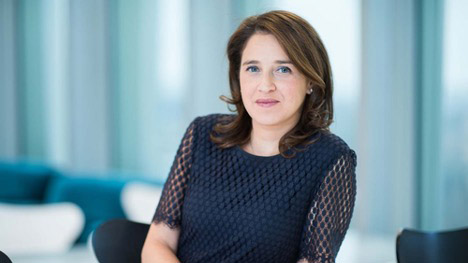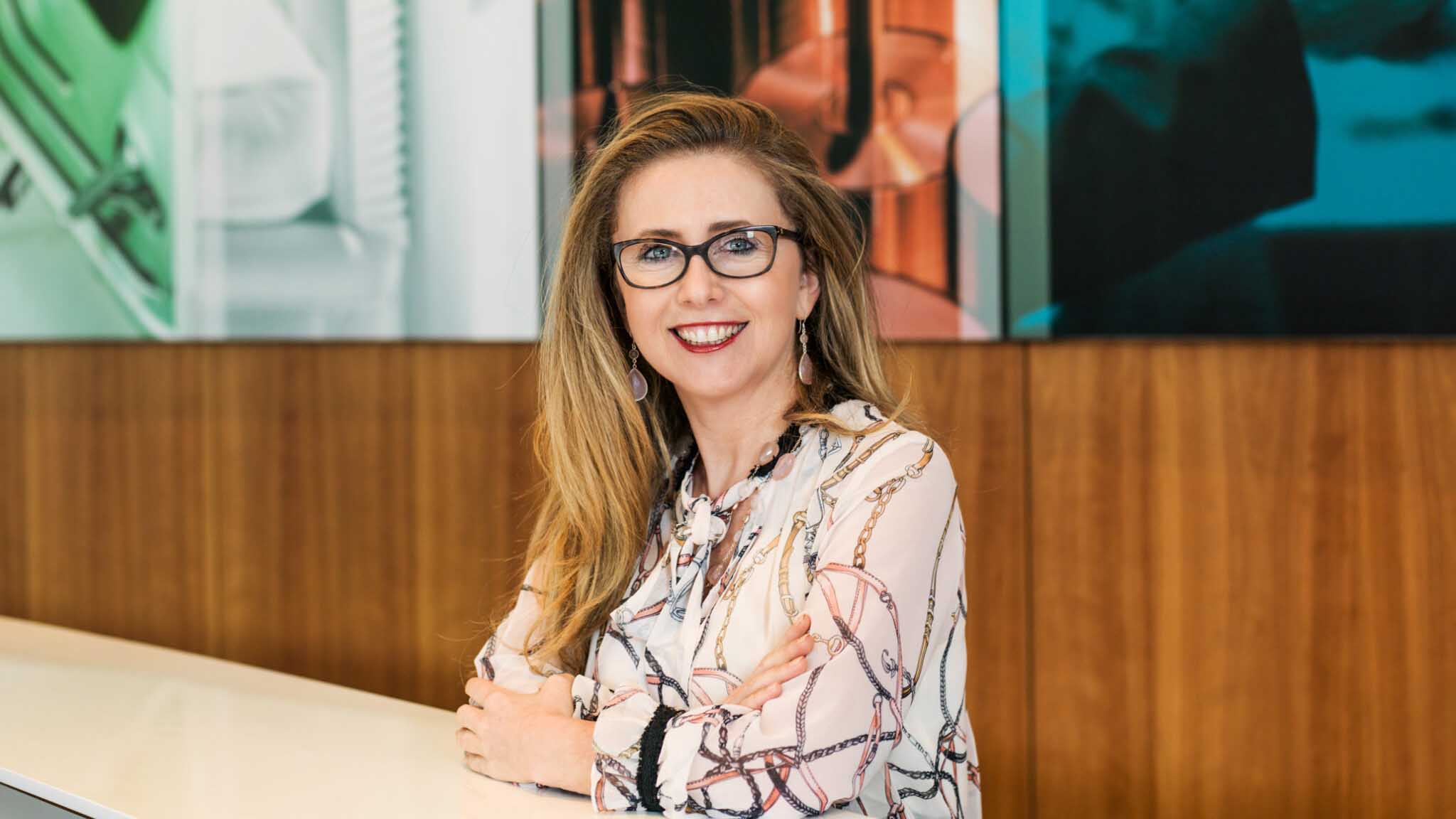June 21, 2023
Capital has become much harder to raise for fintech firms, particularly for later stage fintechs, and the proverbial IPO window is shut. Does this portend an increase in M&A as firms running low on cash look for buyers and opportunistic incumbents and tech companies look for bargains?
We all know that most startups that exit will do so via acquisition not via IPO, so this was always the most likely outcome. But is banking on a sale in the current environment realistic?
For fintechs, M&A transactions are down significantly compared to 2022, both in number of transactions and dollar value. They are well off their 2020 peak. Acquisitions in excess of $1 billion are particularly scarce. Average and median M&A valuation are trending downward, which is another way of saying that deals are smaller.
What about SPACs? SPACs were billed as a faster way to go public than traditional IPOs, with reduced oversight from regulators and less stringent rules when it comes to projections and disclosures. Most SPACs have performed poorly post-merger, though sponsors and insiders often still did very well.
SPAC mergers, which at their peak accounted more than 50% of all IPOs, have essentially disappeared. Indications for the future aren’t good; we’ve seen fintech-focused SPACs delisted and previously announced mergers called off.
So, what is the state of M&A in the fintech sector? For answers, I turned to Greg Smith, Managing Director at San Francisco’s FT Partners, the only investment bank focused exclusively on fintech. His firm offers a full suite of financial and strategic advisory services which includes advice on mergers and acquisitions and on raising private capital. It also recently initiated an equity research capability with coverage of 25 publicly traded fintech firms.
Q. Greg, how would you characterize today’s financial technology M&A environment?
A. It’s improving. It’s been a very difficult year and a half, maybe two years, coming of an absolute blockbuster 2021. Leading into that, 2019 was a fantastic year for M&A as was 2020, believe it or not. The total dollar volume of global FinTech M&A in 2020 actually exceeded ’19 and 2021 blew everything out of the water.
Looking at 2022 and what we’ve seen this year, it’s been quite a different environment. M&A activity is down sharply, but we are starting to see the proverbial green shoots out there. There are some signs that we’re coming out of these doldrums.
When I think about M&A, if there’s one thing it’s most correlated with, it’s CEO confidence. A CEO doing a large acquisition has to be confident. If you’re going to your board or your investors, you have to be confident in your business, you have to be confident in the future outlook. There can’t be a ton of economic uncertainty. Whether or not it’s a publicly traded company, the stock market and what’s happening in the capital markets overall has an impact, so it really comes down to that confidence level. You can see it. In 2021 we had record levels. And so even though we had a strong IPO market, we also had a blockbuster M&A market. When people are confident and their stock is doing well, they’re much more willing to step into an M&A transaction that obviously has risk involved.
Q. Does this imply then that on the other side of that transaction the CEO of the company being acquired is less than confident?
A. Not necessarily. Obviously, there’s a reason somebody sells. From the seller’s perspective, you want to sell when valuations are the highest, but it doesn’t necessarily follow that they’re not confident. The timing has to be right, the valuation has to be right, and sometimes 1+1=3 and the firm that’s selling will benefit from that if they get paid in stock or there’s a strong earn-out. The seller may be confident, too.
Q. Broadly speaking, are there notable regional differences when you look at Asia, Europe, and the U.S.?
A. Right now, everything is generally depressed, so there’s no one geographic area that is bubbling up from a fintech M&A perspective. We do deals on almost every continent, so we have a pretty good view of things.
In Europe, there seems to be relatively more private equity firms acquiring fintech firms. In Asia, there’s a race to build mobile wallets and add more features and functionality, so that’s driving some M&A. But while there are some regional differences, I’d still say that right now everything is pretty depressed. As it is on the IPO front, as well.
Q. Are any sectors particularly hot? And is there currently a market for crypto firms?
A. Historically, if you look at all fintech M&A, payments has been the most active sector, and that’s likely to continue. Payments touches lots of sectors and it’s very conducive to M&A because it’s a scale business.
There are other pockets. I’d say providing fintech to SMBs is a hot area and there are lots of different point solution providers — lenders, accounting software, expense management providers, etc. A lot of that is likely to come together over time. Square has proven that you can build a big business providing fintech services to small businesses, so they have paved the way. There’s a fair amount of activity there, and drilling down within that sector, providing B2B payments broadly is a fairly hot area just because it’s the last big area of payments that has yet to fully digitize.
I think fraud has always been a hot space and that’s likely to continue, especially as we get more and more real-time payments. People outside the U.S. always laugh when I say real-time payments is the hot new thing. They point out that they’ve had real-time payments for years. But it’s really coming to the U.S. starting this year with FedNow and the adoption of the RTP network. That’s going to be a game changer. From an infrastructure perspective, banks are going to have to go from batch-based processing to real time.
From a fraud perspective, when that money comes out of your account, it’s gone. So that will be an active area from an M&A perspective. There are a lot of different fraud providers, but there, too, a lot of them target just one area. When you think about the entire customer life cycle, people tend to touch just one part of it. So, I think we’ll see consolidation to build out broader fraud platforms and to meet the demand that’s going to come with real-time payments.
To answer your crypto question, that’s a market that is down sharply and really what’s happened is people have moved to the sidelines. I like to think about how big your funnel is. How big is the universe of investors or acquirers, and the funnel has gotten much smaller for crypto. But there are a lot of crypto companies out there — some you’ve never heard of — that are making money. Bitcoin is still at $25,800 as I look at it just this second. There are still a lot of believers in the benefits of crypto and the concept of electronic money that you can use like email. We’re seeing some different use cases for crypto in payments and other areas, so I’d say the universe of buyers and investors has gotten much smaller but there’s still a fair amount of interest in the space. It’s certainly not going away, but unclear how it plays out in the near-term given regulatory uncertainty.
Q. What percentage of acquisitions these days are the result of a competitive process?
A. It’s hard to give you an answer because it’s not something that anyone can easily track. We gather every element of data on every single fintech transaction that we can uncover, but it’s not something that’s typically advertised.
How do you define a competitive process? If you define it as somebody putting together a book and sending it out for a typical M&A auction, then that certainly happens fairly often.
When we’re running deals, typically that’s the last thing we want to do. We always think things are better bought than sold. Something that happens organically tends to be a bigger outcome.
I would say that there are very few processes where it’s a one-off and a single buyer and a single seller magically come together. Something could start that way but there’s often a market check. It still may result in the original buyer acquiring the asset but there tends to always be some sort of competitive tension. Certainly, as an advisor we want there to be competitive tension because it’s typically going to drive the better outcome. So, I’d say the majority are the result of some sort of a competitive process; very few are completely the one-off situation.
Q. Are we done with SPACs? Or are SPACs going to be a viable route to the public markets for high-quality fintech firms?
A. We’re not done but I don’t think we’ll ever again see SPACs represent that proportion of IPO activity. I don’t think they’re going to go away. I say that because there are specific situations where SPACs can actually be the better choice for getting a company public. Those situations tend to involve one of two things.
The first is where for whatever reason the story is a little bit more nuanced or a little bit more difficult to understand. A traditional IPO tends to go very quickly. When you’re talking to investors, going out to all of them at the same time, there’s not a lot of time to tell your story in depth and make sure everybody understands. In the SPAC process, because you can bring people over the wall, you can get to know anchor investors early on and you can spend a lot of time together, so you have more time to tell a nuanced story.
Second, I do believe that certain SPAC teams can add a lot of value. Sometimes the sponsors are executives who’ve been in the industry for many years. They come with rolodexes, they come with knowledge of how to run a business in a certain space that they know pretty well, so they can bring a lot of value to a company post the SPAC process. When you have those ingredients coming together, that’s where a SPAC can make sense.
But it’s very clear that all this heightened, excessive SPAC activity was a symptom of all the liquidity sloshing around and the speculative fever that happened in 2021. And there were lots of companies that went public before they actually should have just because the market was going to suspend disbelief and look many, many years out on financial projections. As soon as it became clear companies weren’t going to make these projections, we had a major problem. Definitely we’ll see a much more sober market with regard to SPACs going forward.
Q. You could provide a book-length answer, I’m sure, but in brief, what distinguishes successful acquirers from those that are unsuccessful?
A. It comes down to experience. The more experience you have the better you are. When I think about the companies I’ve seen become successful serial acquirers, they have a playbook for the integration.
What are you ultimately trying to get from an acquisition? You’re doing a deal because you’re hoping for synergies. You’re hoping that 1+1=3. The most successful companies are very good at identifying where those synergies are. You have revenue synergies, obviously, and you have expense synergies.
They’re educating their own sales forces right away. Now you have another product to sell so you have to prep your sales force, prep your teams for that product. On the expense side, you’re mapping out where you’re going to get cost savings. You’re thinking about real estate, you’re thinking about headcount. Having a strong plan and pretty firm targets with specific time frames around those creates a very clear roadmap against which everyone’s going to be executing.
So, the companies that have done deals before and are able to pull out a playbook — those are the ones that have been really successful. It comes down to experience, focus, doing your homework, and thinking about everything ahead of time.
I think being transparent with your employees also matters a lot. Any situation where employees feel they’re in the dark or are uncertain as to how things will play out will crush productivity. You want to avoid creating a situation where people aren’t as productive as they can be.
Q. On the other side of the transaction, a founding team may only experience being acquired once. The acquiring company may do dozens of acquisitions each year. There’s clearly an imbalance of knowledge and experience in these transactions. What can founders do to level the playing field?
A. There’s an easy answer to that: hire a good advisor! That’s really what we do. We can add substantial value and we bring that expertise and experience to the process. We level the playing field. As you say, you could have a huge company that’s been very successful making tons of acquisitions buying a relatively smaller entity. You’d think there’d be an imbalance but bringing in the right advisor is really key.
Thinking about some of the mistakes to avoid, one of the biggest we see is leaving money on the table. If you’re not able to articulate those synergies to the buyer, articulate all the future opportunities you have in your business that you’ll be able to realize with additional resources, you’re not going to get credit for them. You need to be able to lay it out and articulate a plan for those future revenue streams. It’s easy to see what a business is doing today, but you need to anchor people to what this business can really be in the future in order to maximize value. We think we’ve seen money left on the table by companies that just couldn’t articulate that.
You also need to be prepared. If you’re selling your business, you need to have a great answer to every potential question. Anything that looks like a blemish you want to be able to explain in a truthful way. You want to anticipate every question and not be caught flat-footed. It comes down to preparation.
Q. Should earnouts be avoided? Can you structure them so they are fair? I’ve heard of acquirers using the post-acquisition budget process to prevent an earnout being reached.
A. In an ideal world, yes. You would prefer there not be an earnout because there are ways in which a company can be stifled or held back from ultimately achieving that earnout. But in practice, we haven’t seen that happen much.
Doing some sort of time-based vesting of proceeds is obviously a lot simpler. At the end of the day, if you’re buying a company, you do want it to succeed, so usually companies are ecstatic if you hit the earnout because that implies success. So if it’s structured right, it can be a powerful incentive. But they do introduce extra elements of uncertainty. So, all things being equal, if we are advising a seller we would prefer not to have them.
It’s obviously a simpler transaction if there’s no earnout involved. But you’ll continue to see them. They will continue to be used, for sure.
Q. How has due diligence changed since Frank? Or has it?
A. That’s a good question. There aren’t tons of Franks that have happened that we know about. It’s not something we see too often, where a buyer is suing a seller for fraud and complete misrepresentation.
Due diligence is a key part of any M&A transaction. In our own business, before we even take on a client, we do our own due diligence. Buyers doing due diligence are often bringing in third parties to do additional due diligence. Your typical transaction has multiple layers of due diligence involved. If somebody can completely fabricate data and bank statements, there’s always going to be an element of fraud. Fortunately, we have not seen a lot of that.
It will probably cause certain people to turn the dial up on due diligence. We’ve seen that with buyers that have done acquisitions that haven’t been hugely successful, too. For the next one, you can tell that their due diligence processes have been ramped up. So we’ll see some of that but by and large I don’t think it’s changing anything dramatically.
Q. When a deal is announced but terms aren’t disclosed, can I assume it’s an acquihire, or that somebody on the cap table got crushed?
A. No. That’s not always the situation.
There are levels of materiality for public companies that cause them to have to disclose acquisition prices, but there have certainly been situations where very large public companies have acquired fintech companies for hundreds of millions of dollars and it’s a great outcome for all involved but the public company did not disclose the price. We’ve been involved in lots of situations where it’s been a successful outcome but the buyer with whatever rules they were playing under determined that they weren’t going to disclose the dollar amount. Sometimes it’s for competitive reasons. Sometimes they don’t want you to figure out the multiple they paid. There are lots of reasons why you may not want to disclose it if you don’t have to. And it still could be a highly successful outcome for the seller.
Now you’re right, lots of small deals are more acquihires and the price would be shockingly small in some instances. But I would not always draw that conclusion.
Q. Do you expect we’ll see more take-private deals like the acquisition of Duck Creek?
A. When I think about Duck Creek, I think of it as essentially an LBO. We’ll continue to see private equity interest in fintech companies, especially those that can be the basis of a platform in an interesting space, complemented by smaller acquisitions.
One of the challenges here, though, is interest rate levels. If you’re using debt, that cost of capital has become much, much higher than it was a year ago, two years ago, three years ago.
Q. Where in fintech would you be concerned about anti-trust authorities blocking a merger?
A. It sounds like the obvious answer, but it’s really around the big payment networks — Visa and Mastercard. It’s interesting to think about payments, because it’s highly fragmented, but Visa and Mastercard do have dominant market positions in some fields when you look at them through some lenses, and that’s the view the department of justice has taken with both of them. So that’s the main area that stands out. Anytime Visa and Mastercard are doing acquisitions, that’s going to raise antennas.
When I look across the globe, things are surprisingly fragmented outside of the Visa and Mastercard position. But even there we’ve got new entrants like FedNow in real time payments, and even crypto is a new way to make payments. That market has become much more competitive when you look at all the different ways someone could make a payment.
Outside of that? I think of the key infrastructure players. In the bank tech world, you do have a handful of large players but it’s highly competitive, nobody with dominant market share. The exchanges are always an area that potentially comes up but even there it’s really more fragmented than it appears.
Q. How big does a transaction need to be for FT Partners to get involved?
A. We’re very entrepreneurial, so we look at every situation on its own. We don’t have any strict rules that say it has to be this size or generate this amount of revenue. We’re privately held and we’re not trying to hit quarterly numbers, so we look at each potential client situation on a stand-alone basis.
We think about the probability of a transaction. How attractive is the company? If the process has already started, can we add significant value? We gauge each situation against our own resources. Fortunately, we tend to be very busy, so taking on a new client comes with an opportunity cost. We do some small deals; we do some very large deals. We look at each one and make a determination across a number of factors.
Q. Let’s say I have a fintech startup and I’m growing it through seed, A, B, and C rounds. At what point should we get to know each other?
A. We love to get to know everybody in the global fintech ecosystem. We talk to everyone. I can think of a client we have today that we met when they were just getting started. They wanted to bounce some ideas off us regarding the business they were going to build and it ultimately became a unicorn.
We love to get to know people and understand what they’re doing. We’re happy to give some free advice as they’re building and talk about some of the pitfalls we’ve seen. We literally have thousands of conversations every year with companies although only a very few ultimately become clients.
We also publish a whole bunch of content: CEO interviews, webinars, panel discussions, transaction profiles, deep dive industry reports.
Q. How should potential acquirers and acquisition candidates contact you?
A. My email address is greg.smith@ftpartners.com.
Q. Is there anything else you’d like to leave us with?
A. If you look at financial services broadly, there’s still a ton of digitization that has to happen. Large banks still have tons of inefficiencies and there’s still too much paper. Data is not being leveraged. Think about AI and what that’s going to mean. There’s just years and years and years of innovation that still need to happen. M&A will be a driver. Large institutions or vendors feeling like they need more talent, or different products, or more modern platforms. So I sit here and say, man, we’ve got a long ways to go.
The other thing is we’re seeing the next versions of business models. We’ve had the first wave over the last decade or so. We’ve seen some successes, some failures. People are taking those lessons and starting new companies. So there’s a whole new wave coming that in part is going to be driven by AI, and the large financial institutions will constantly be playing catch-up. So there’s a long way to go and M&A will be a big part of it.
# # #




